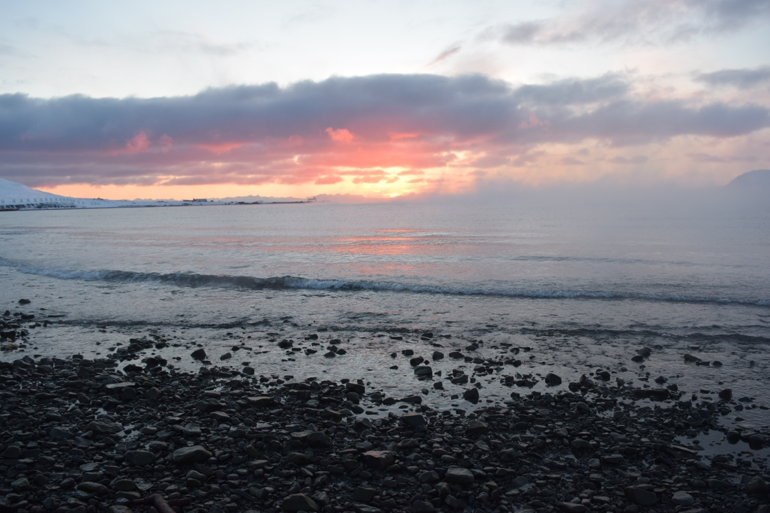We are all living in a #PolarWorld, and during this Polar Week we wanted to particularly highlight how everyone is affected by changes happening in the poles. Even if you live in a country at a southern latitude that doesn’t have any polar territory, polar issues still affect you! Sea ice loss, permafrost thaw, and melting glaciers (among other things) have impacts on the climate and oceans that affect the globe. To get an international perspective, we enlisted the help of APECS National Committees to get their opinions! This blog is a summary of fifteen responses from Belgium, Canada, Germany, and South Africa.
We asked everyone what #PolarWorld meant to them. The majority of responses touched on how the polar regions and the world are inextricably intertwined. Some said it was about sharing information and projects at a global scale. Some said it was a way of generating awareness about polar issues. Regardless, all responses had one thing in common – passion about living or working in polar regions!
#PolarWorld reminds me as a northern Canadian of the interconnectedness of global climate change. The circumpolar North is experiencing climate warming at faster rates than anywhere else on the planet, but the majority of causation is not by northern residents. There are only 114,000 people living in Canada's North, while the remainder of Canada's 35 million people live in the South. The decisions anybody makes in the world, from individuals to governments to multi-national companies, impacts northern Canadians. As polar ECR's we are often measuring and monitoring the impact of climate change on northern terrestrial and marine ecosystems, and #PolarWorld reminds me that these studies are not separate from the lives and people of the North.
- APECS Canada

Melting of sea ice and glaciers will impact global oceans
As an early career scientist who has been fortunate enough to conduct studies in Antarctica, #PolarWorld pulls at my heartstrings. The hashtag is more than just a social networking tag. It's a mechanism for awareness that provides an easy link to what the world really needs to know - that the poles matter! The hashtag provides a savvy platform for international communication and gives the opportunity to both share information, and highlight the role that the Poles play in our earth system. It's a smart technique for today's technological society, which will hopefully take off and give the poles the attention they require.
- APECS South Africa
To fully understand #PolarWorld, you need to know what changes are happening in polar regions and how they affect the globe. The rate of warming has been greater in arctic regions when compared to the rest of the globe. The Arctic is warming at twice the rate as other parts of the globe, and in the last 100 years we have seen warmer air and sea surface temperatures. With warmer temperatures we are seeing more precipitation in the form of rainfall rather than snow, with impacts on the surface energy balance (albedo!) and hydrological system. Permafrost has been warming, and thawing of permafrost is predicted to make previously frozen carbon accessible for decomposition which is be a positive feedback to global climate change. We are seeing reductions in glacier mass, which increases input into and freshening of the Arctic Ocean and results in sea level rise. Positive feedbacks in the Arctic are an important part of global climate change. Increased runoff of freshwater into the Arctic Ocean due to increases in precipitation and reduced storage in glaciers and permafrost and permanent snow banks is resulting in a “freshening” of the ocean surface. Freshening of Arctic Ocean changes the density of surface waters which impacts thermohaline circulation, and changes in this circulation will affect global climates! Another important feedback is the ice-albedo feedback, where less sea ice results in more heat absorbed by the ocean, which results in less sea ice, and so on. As global ice cover decreases, the reflectivity of Earth’s surface decreases, more incoming solar radiation is absorbed by the surface causing more warming.
There are many changes occurring in polar regions that have wide impacts, but we asked everyone to summarize some of the impacts that are specifically being felt in their home countries. Changes in the dominant behaviour of the jet stream are predicted to have an effect on the weather patterns in Germany (and most of Europe). In South Africa, they are currently experiencing one of the worst droughts on record. In Belgium they may experience heat waves and stronger floods. Lower latitudes in Canada are affected by changes happening in the Arctic, for example sea level rise. Clearly, people all over the globe are being affected by climate change and especially those changes happening in the arctic!
#PolarWorld is.. The opportunity to spread information and projects about polar regions to a wider audience.
- APECS Germany

A group of international students at UNIS, Norway working together and learning about polar issues!


